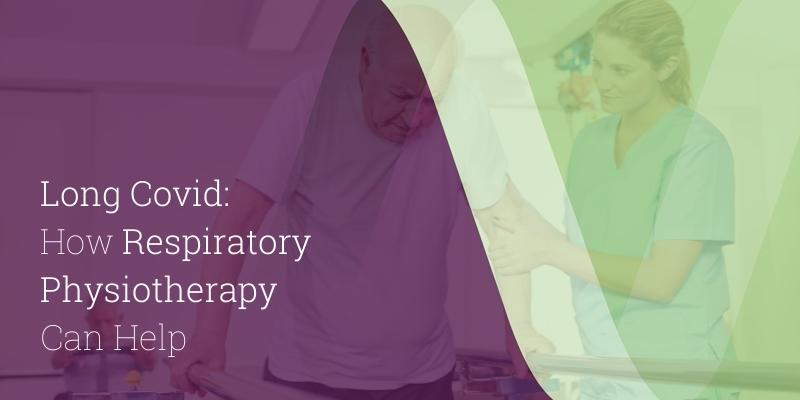
Long Covid has been recently defined by WHO as a syndrome affecting individuals who experience Covid-19 symptoms that last at least two months. It is estimated that 1 in 40 people who have had Covid-19 in the UK presents at least one symptom after 3 months. Vicky Robinson, Respiratory Physiotherapist at New Victoria Hospital, explains how specialist physiotherapy treatments can help to relieve breathlessness and many other symptoms that can persist after a Coronavirus infection.
What are the most common Long Covid symptoms?
A recent study of over half a million adults in England found that one in 20 had persistent Covid-19 symptoms. Common post-Covid Syndrome or Long Covid problems are:
- fatigue
- shortness of breath
- chest pain and tightness
- problems with memory and concentration or brain fog
- difficulty in sleeping
- dizziness
- pins and needles
Many people who have had Covid-19 find that breathing difficulties can significantly affect their daily life for weeks and sometimes months after they have had the virus.
A few studies have reported dyspnoea and other respiratory symptoms to be present in up to two-thirds of patients as the main Long Covid symptoms.
Many people with Long Covid are not breathing correctly. They may be breathing too fast, which can alter carbon dioxide levels in your blood, or using the top of the chest, which uses more energy than it should.
This can give some unpleasant ailments such as:
- being unable to take a deep breath in
- shortness of breath
- yawning often
- headaches
- chest pain
- brain fog
- dizziness
If you breathe incorrectly, your body is often encouraged to be in a state of fight and flight. This can cause palpitations, abdominal problems, fatigue, muscle aches and sleeplessness, eventually causing anxiety, making you breathe even worse and end up as a vicious cycle.
How respiratory physiotherapy can help you recover from Long Covid
Respiratory Physiotherapy is one of the most helpful treatments for people who continue to have difficulties breathing and other respiratory symptoms.
A tailored approach
During your first session, the Physiotherapist will ask questions about your symptoms, lifestyle, and general wellbeing.
You will be able to discuss any concerns and ask any questions you might have, and be listened to. They will then assess your breathing and teach you how to breathe at rest when speaking and walking.
The Physiotherapy program will be planned based on your individual needs to avoid over-exertion and relapses.
How does Respiratory Physiotherapy work?
You will be gently introduced to different breathing exercises and techniques, learn how to breathe correctly and receive advice and guidelines to practice at home.
We are all still learning about the lasting effects of Covid-19. Still, having seen many patients who are making a good recovery from their symptoms, you should always seek professional expertise to support your rehabilitation.
Respiratory physiotherapy can also help people who have asthma and find that their breathing is getting worse, bronchiectasis or other causes of mucus production to be able to clear your chest as effectively as possible.
Exercise has been used for many years for patients who have COPD (Chronic Obstructive Pulmonary Disease) and other lung diseases and struggle with breathlessness.
By learning to exercise in a safe and controlled environment with the proper education, the feeling of breathlessness can be eased.
If you would like to book an appointment at New Victoria Hospital with one of our experienced Respiratory Physiotherapists in a calming environment, you can call us on 020 8949 9040 or fill in our online form.












